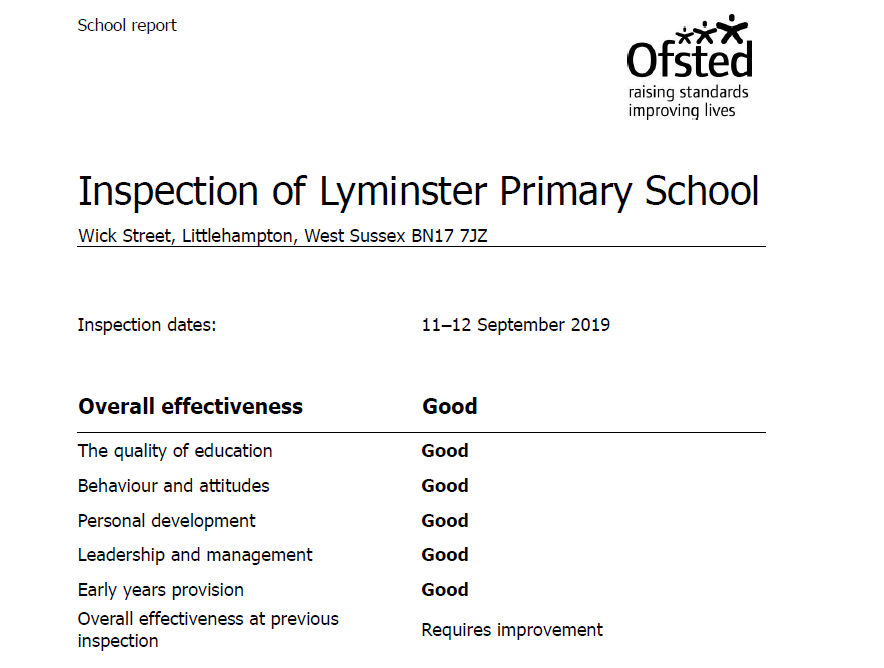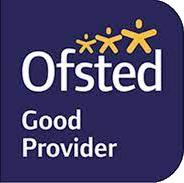Performance
Ofsted Report
Please click here to download the school’s most recent OFSTED report or visit the Ofsted website to view all reports related to Lyminster Primary School.


Ofsted Parent View
Whilst we hope that our School Information page answers a lot of your questions about our school, we hope that you will find this area helpful by providing details of other aspects associated with children, schools and parenthood.
Please use Parent View to add to the views. You will need to register, but it is a quick process. Your views and feedback are so important to us, and we’d love to have everyone’s contribution!
Achievement Data
For information regarding school performance tables please visit www.education.gov.uk/schools/performance/. For a more detailed report, please click here.
As a result of the disruption caused by the pandemic, schools have not published recent achievement data due to the caution that is required when analysing this data.
Pupil Premium Funding
Pupil Premium is additional funding given to publicly funded schools in England to raise the attainment of disadvantaged pupils and close the gap between them and their peers.
- who are looked after by the local authority (including adoption, a special guardianship order, a child arrangements order, a residence order);
- who have been eligible for Free School Meals (FSM) at any point in the last six years (also known as Ever 6 FSM); and
- whose parents are currently serving in the armed forces.
To check if your child can get free school meals, please click here.
If you think your child might be eligible for this additional funding then please speak to a member of staff.
Schools have to report annually to parents and governors about how they have used the Pupil Premium funding. You will find our annual reports below.
PE & Sports Premium
The Sports premium must be used to fund additional and sustainable improvements to the provision of PE and sport, for the benefit of primary-aged pupils, to encourage the development of healthy, active lifestyles. Funding should be used to:
- Develop or add to the PE and sport activities that your school already offers
- Build capacity and capability within your school, to ensure that improvements made now will benefit pupils joining the school in future years.
Staff Information 2021-2022
Union officials – no union officials took time off for duties
Earnings over £100, 000
Number of staff members earning over £100,000 (2021-2022) – Nil
